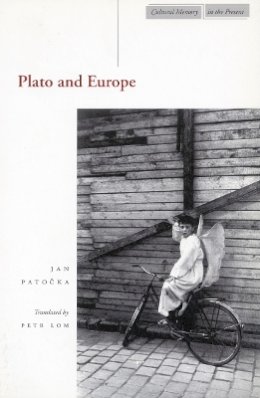
Stock image for illustration purposes only - book cover, edition or condition may vary.
Plato and Europe
Jan Patocka
€ 129.13
FREE Delivery in Ireland
Description for Plato and Europe
Hardback. The Czech philosopher Jan Patocka (1907-1977) is widely recognized as the most influential thinker to come from postwar Eastern Europe. This book presents his most mature ideas about the history of Western philosophy. Translator(s): Lom, Petr. Series: Cultural Memory in the Present Series. Num Pages: 252 pages. BIC Classification: HPCA. Category: (G) General (US: Trade); (P) Professional & Vocational; (UP) Postgraduate, Research & Scholarly; (UU) Undergraduate. Dimension: 5817 x 3887 x 23. .
The Czech philosopher Jan Patocka (1907-1977), who studied with Husserl and Heidegger, is widely recognized as the most influential thinker to come from postwar Eastern Europe. Refusing to join the Communist party after World War II, he was banned from academia and publication for the rest of his life, except for a brief time following the liberalizations of the Prague spring of 1968. Joining Vaclav Havel and Jiri Hajek as a spokesman for the Chart 77 human-rights declaration of 1977, Patocka was harassed by authorities, arrested, and finally died of a heart attack during prolonged interrogation.
Plato and Europe, arguably ... Read more
Show LessProduct Details
Format
Hardback
Publication date
2002
Publisher
Stanford University Press United States
Number of pages
252
Condition
New
Series
Cultural Memory in the Present Series
Number of Pages
252
Place of Publication
Palo Alto, United States
ISBN
9780804738002
SKU
V9780804738002
Shipping Time
Usually ships in 7 to 11 working days
Ref
99-1
About Jan Patocka
Other books by Jan Patocka published in English are Body, Language, Community: Heretical Essays in the History of Philosophy, and An Introduction to Husserl's Phenomenology.
Reviews for Plato and Europe
"Patocka's contribution to philosophy and, in particular, to post-Heideggerian thought has shaped the European debate about the future of philosophy and phenomenology. Plato and Europe is one of the finest introductions to phenomenology. Its major thesis, however, is an extremely powerful and fascinating argument concerning the specificity and heritage of European thought: that European thought and civilization rests on the ... Read more
